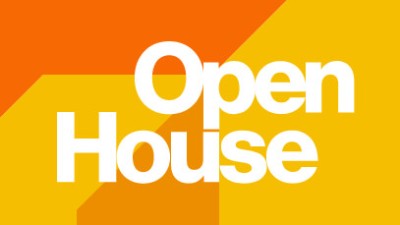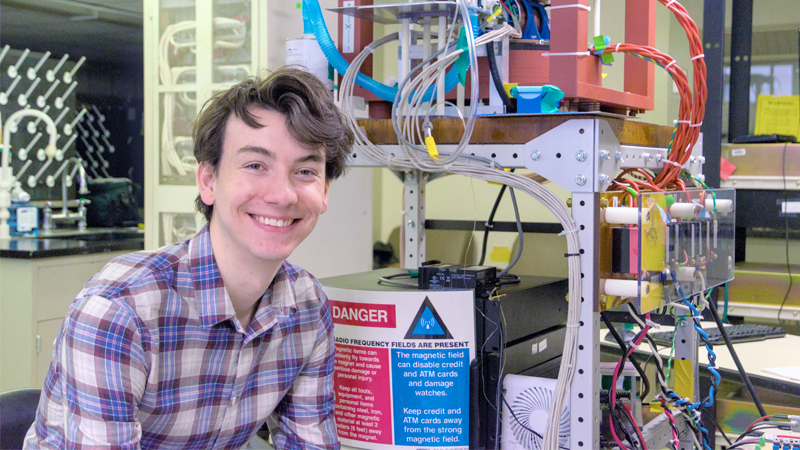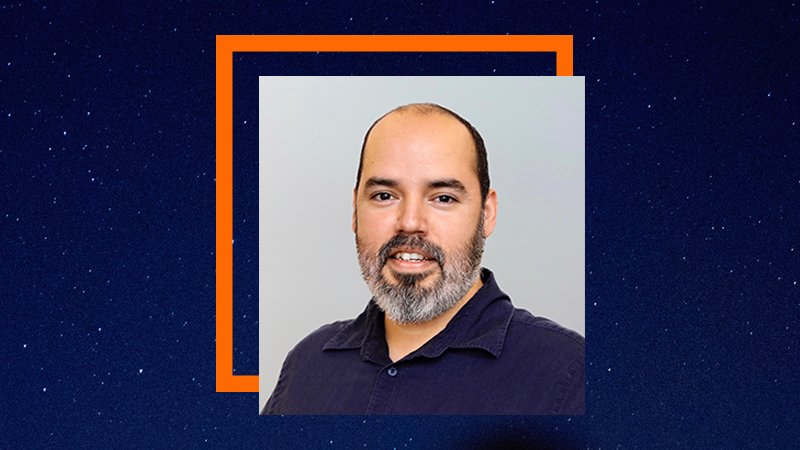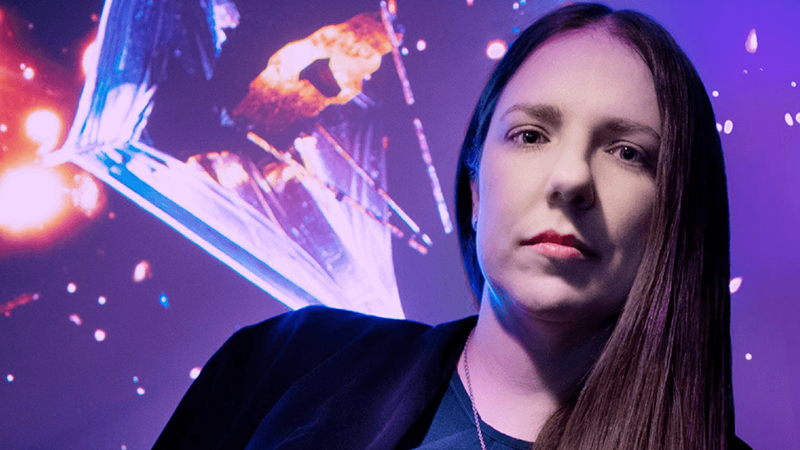From RIT and Cornell to Co-founder of Kanvas Biosciences
After studying physics at RIT and Cornell, Hao Shi ’13 now uses his quantitative skills as co-founder and CTO of Kanvas Biosciences, a company dedicated to developing innovative live biotherapeutics.
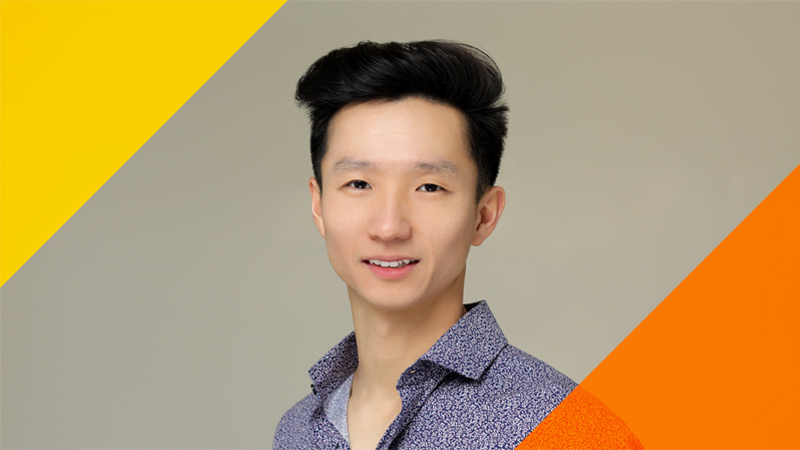
Hao Shi ’13 has always liked the ability to make sense of the world through quantitative approaches. This passion for quantitative fields led Hao to study physics and mechanical engineering at RIT. “Thanks to the flexibility of RIT’s curriculum, I graduated with a diverse set of skills which helped me in my graduate studies and in my current role today.” After graduating from RIT, Hao continued his studies in physics at Cornell University. Today, Hao is the co-founder and CTO of Kanvas Biosciences, a therapeutics company building the world’s first microbiome drug screening, discovery, and manufacturing platform to accelerate the development of next generation live biotherapeutics.
During his time in the mechanical engineering program at RIT, Hao was required to complete co-ops, so he chose to pursue positions in research labs where he would have the opportunity to explore various skills and topics. “My co-ops included studies in astrophysics, solar panel and solar cell research, and quantum optomechanics. These experiences solidified my passion for research and the pursuit of unanswered questions.”
Hao said his experience at RIT was crucial in preparing him for graduate school and for his current success at Kanvas. “The co-op experiences pushed me to explore my options and gain diverse experiences. Through my co-ops, I gained a variety of skills from different contexts which have proven to be highly valuable in my work.”
Hao also spoke highly of his mentors at RIT. “My undergraduate advisor, Dr. Mishkat Bhattacharya, provided invaluable guidance and support in my research pursuits. His motivation inspired me to pursue opportunities that I would not have sought out on my own.” Additionally, Hao enjoyed learning about solar cell technology from Dr. Seth Hubbard during one of his co-ops. “Dr. Hubbard’s expertise in this field allowed me to gain hands-on experience and contribute to his efforts in making improvements in solar cells. My co-op in his lab was a rewarding experience, as I had the chance to work in an experimental setting and assist in creating a new apparatus to accurately simulate the solar spectrum.”
“Co-op is a valuable experience. I got hands-on opportunities that honed my skills in building and creating, and I got research-based opportunities that challenged me to think critically and deeply about complex problems. These skills prepared me well for graduate school and the subsequent opportunities that followed.”
As he began his graduate studies at Cornell, Hao explored different research topics. “After thoughtful consideration and discussions with colleagues, I found a passion for the intersection of biology and physics. This led me to pursue my Ph.D. with my advisor at Cornell, Iwijn De Vlaminck, who invited me to be one of the first graduate students to help build his new lab. This pushed me out of my comfort zone as a physicist with limited knowledge in biology, but I embraced the challenge and spent a significant amount of time exploring different projects. It was during this exploration that my advisor and I discovered a promising project, which became the focus of my thesis research. We knew that if we could make it work, it could have a big impact on microbiome research. After four to five years of hard work, my research was published which prompted me to contemplate my next steps.”
Hao decided that he wanted his next endeavor to make a positive impact on the world. He saw the potential to turn his microbiome research into something that could truly improve people's lives and decided to seize this rare opportunity. With a shared vision, he collaborated with his Ph.D advisor, Iwijn De Vlaminck and infectious disease specialist and medical microbiologist, Matthew Cheng, to pursue his next career move. Through successful fundraising and recruitment efforts, their joint venture, Kanvas Biosciences, became a reality.
Hao's decision has certainly paid off, as he now holds the positions of co-founder and CTO at Kanvas Biosciences. He proudly describes the company as a comprehensive microbiome therapeutics firm, boasting an exceptional platform that uncovers unique insights not accessible to others. “Our mission at Kanvas is to illuminate microbial life with advanced imaging tools and translate unique insights to create novel microbial therapeutics. Our ultimate objective is to harness the valuable knowledge gained from our cutting-edge platform to develop advanced live biotherapeutic products that can significantly improve clinical outcomes for a variety of gut microbiome related disorders.”
When asked about the future of Kanvas, Hao said, "We are excited to announce that our company has recently acquired key assets and welcomed a talented team from Federation Bio. This marks a significant milestone for us, as we primarily focused on our platform technology until now. Our innovative technology enables us to uncover hidden insights that others are unable to see, solidifying our position as a leading discovery platform. However, our ultimate goal has always been to utilize the knowledge gained through our platform to develop groundbreaking drugs. And with the addition of Federation Bio, we have successfully completed our pipeline, which allows us to transition seamlessly from basic science discovery to understanding the impact of microbial communities on human health.”
When asked about what advice he would offer to students aspiring to pursue a similar path, Hao emphasized the importance of remaining curious. “In our fast-evolving field of biotechnology, it is crucial to keep up with the latest developments and constantly expand our knowledge. Don't limit yourself to a specific area of interest, instead, embrace the opportunity to learn and grow. Stay curious and pave the way for new discoveries in science.”
Hao also shared that he appreciated the opportunities that RIT provided him as a student. “The skills I acquired at RIT, as well as during my time at Cornell, greatly contributed to my current success. I’m excited to leverage my skills in quantitative science to advance precision measurements in biology.”





